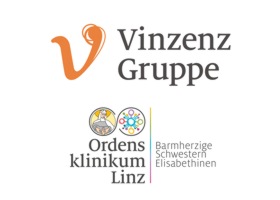Martinek, Martin, Hassanein, Said, Bencsik, Gabor, Aichinger, Josef, Schoefl, Rainer, Bachl, Andrea, Gerstl, Sebastian, Nesser, Hans-Joachim und Purerfellner, Helmut
(2009)
Acute development of gastroesophageal reflux after radiofrequency catheter ablation of atrial fibrillation.
Heart rhythm, 6 (10).
pp. 1457-62.
ISSN 1556-3871
Für diesen Eintrag wurde kein Volltext-Dokument angefügt.
Kurzfassung
BACKGROUND
Induction of gastroesophageal reflux after radiofrequency catheter ablation (RFCA) of atrial fibrillation (AF) may have an impact on the progression of esophageal injury.
OBJECTIVE
The purpose of this study was to assess the acute effect of RFCA on distal esophageal acidity using leadless pH-metry capsules.
METHODS
A total of 31 patients (27 male and 4 female; 25 with paroxysmal AF) who underwent RFCA and esophagoscopy 24 hours before and after ablation were assessed for reflux and esophageal lesions. A leadless pH-metry capsule was inserted into the lower esophagus to screen for pH changes, number and duration of refluxes, and the DeMeester score (a standardized measure of acidity and reflux). No patient had a history of reflux or was taking proton pump inhibitors within 4 weeks before and 24 hours after ablation.
RESULTS
Five patients (16.1%) who presented with asymptomatic reflux prior to ablation were excluded from further examination. Of the remaining 26 patients, 5 (19.2%) demonstrated a significant pathologic increase in DeMeester score after ablation. No statistical differences in baseline parameters, method of sedation, ablation approach, and total energy delivered on the posterior wall were observed between patients with and those without a pathologic DeMeester score. One patient with asymptomatic reflux prior to ablation developed esophageal ulceration.
CONCLUSION
A significant number of patients undergoing RFCA of AF develop pathologic acid reflux after ablation. In addition, a subgroup of patients has a preexisting condition of asymptomatic reflux prior to ablation. This finding may explain a potential mechanism for progression of esophageal injury to atrio-esophageal fistulas in patients undergoing RFCA.
Actions (login required)

- Eintrag anzeigen


 Tools
Tools Tools
Tools